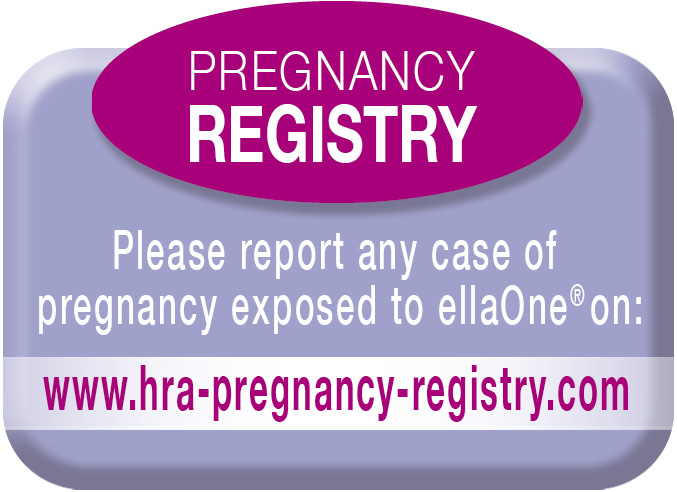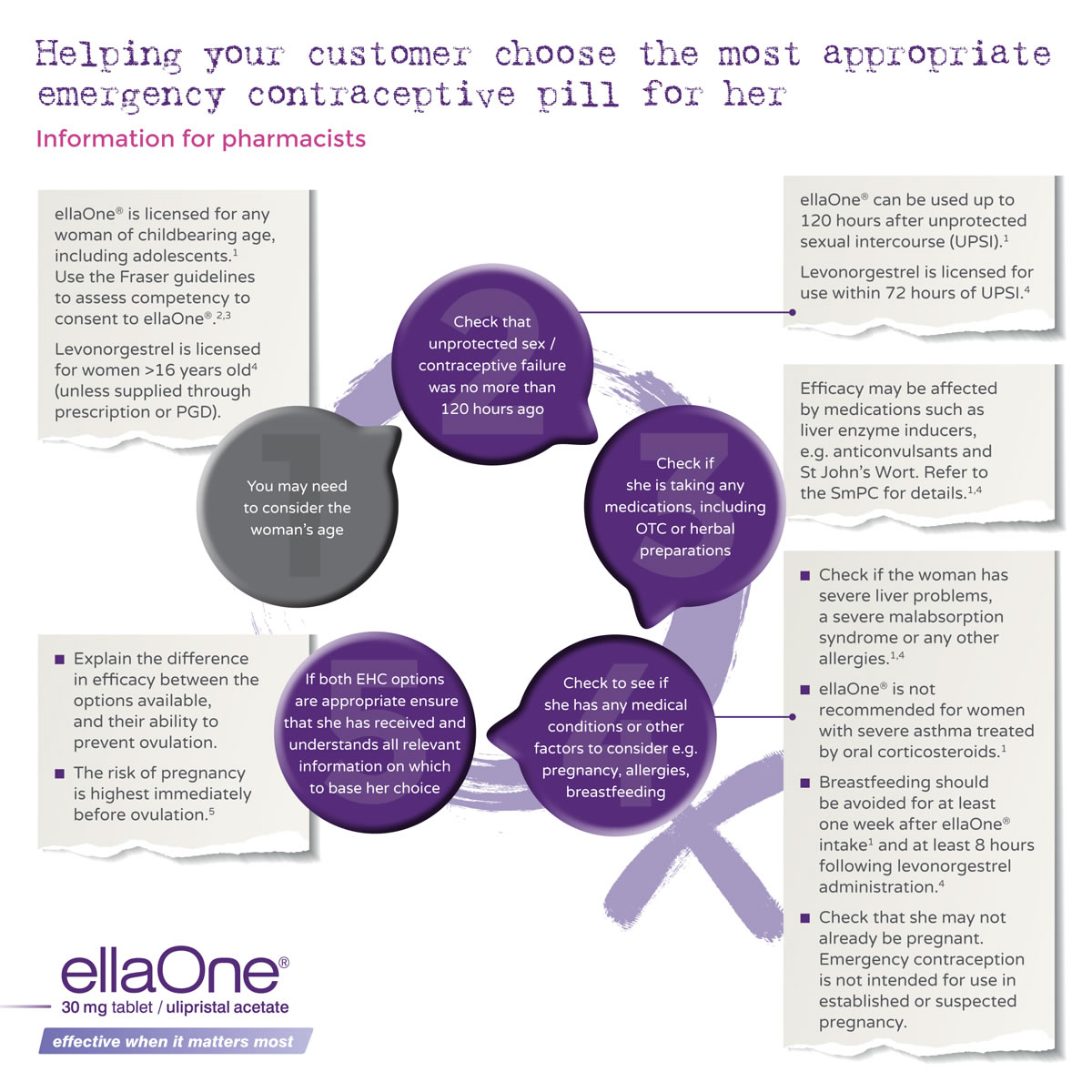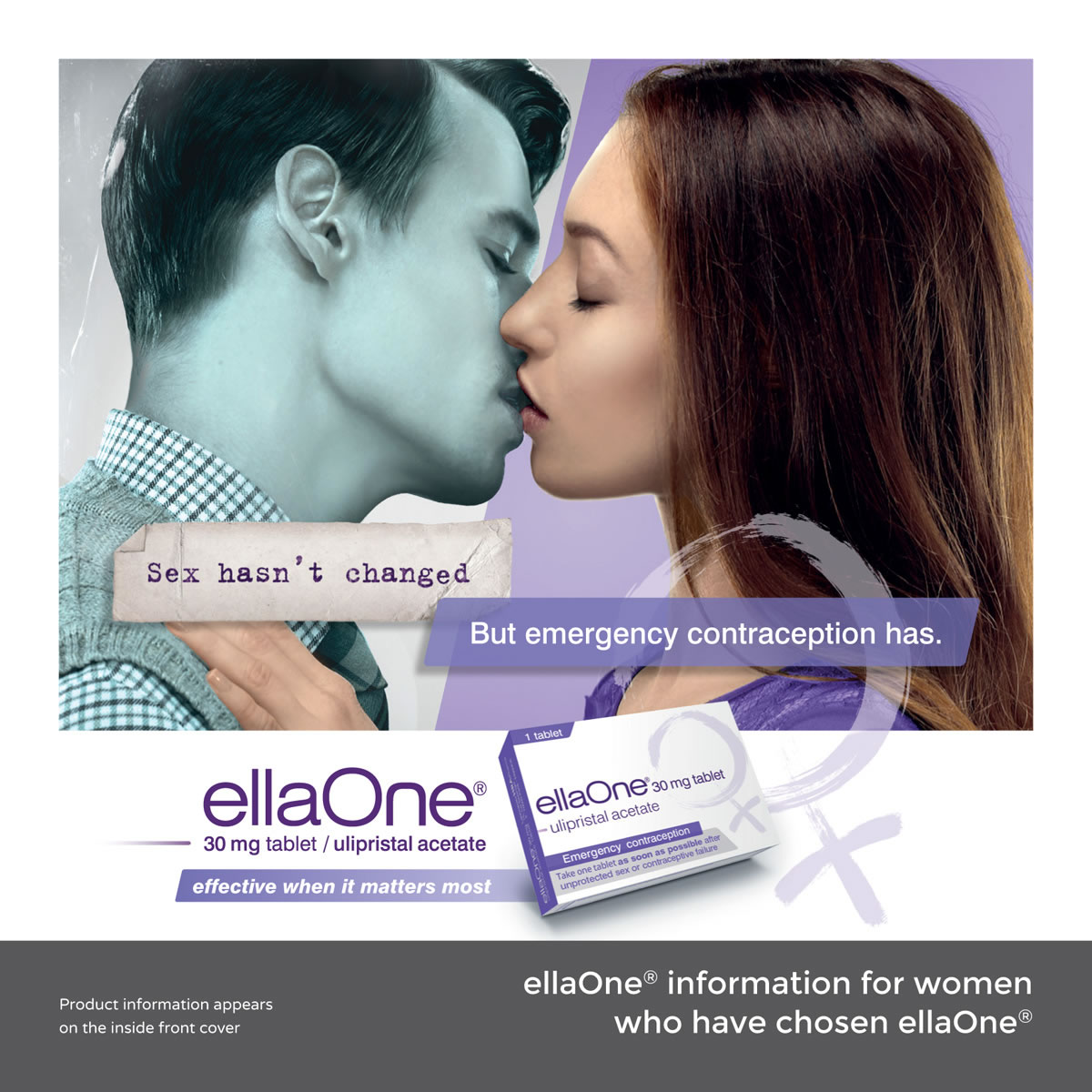ellaOne® can be used by all women of childbearing potential, i.e. from the
first period to the menopause.
This will include requests from women less than 16 years of age. Although it is legal to supply ellaOne® to those under 16, it is important that you have undertaken the appropriate training (e.g. CPPE module on safeguarding children and vulnerable adults) and are fully aware of the guidelines surrounding consent and confidentiality in sexual health services in under 16s.
Gillick Competency & Fraser Guidelines
It is considered best practice for healthcare professionals to ensure young women are mature enough to make decisions and are capable of fully understanding the nature and possible consequences of any treatment.
When deciding whether a young woman is competent to make decisions regarding their contraception, sexual and reproductive health, the terms “Gillick Competency” and “Fraser Guidelines” are commonly used.
The criteria below, applies specifically to contraceptive advice and is known as the “Fraser Guidelines.” This guidance allows healthcare professionals to give advice and treatment provided they are satisfied that:
- The young person will understand the advice and understands what is involved
- The young person cannot be persuaded to inform their parents, or allow them to inform their parents
- The young person is very likely to begin, or continue to have sexual intercourse without contraception
- Without contraceptive advice or treatment, the young person’s physical or mental health (or both) would suffer
Other resources
You may also wish to review the following documents. These are available on the GPhC website: https://pharmacyregulation.org/standards/guidance
- GPhC: Patient confidentiality April 2012
- GPhC: Maintaining clear sexual boundaries
- GPhC: The provision of pharmacy services affected by religions and moral beliefs














